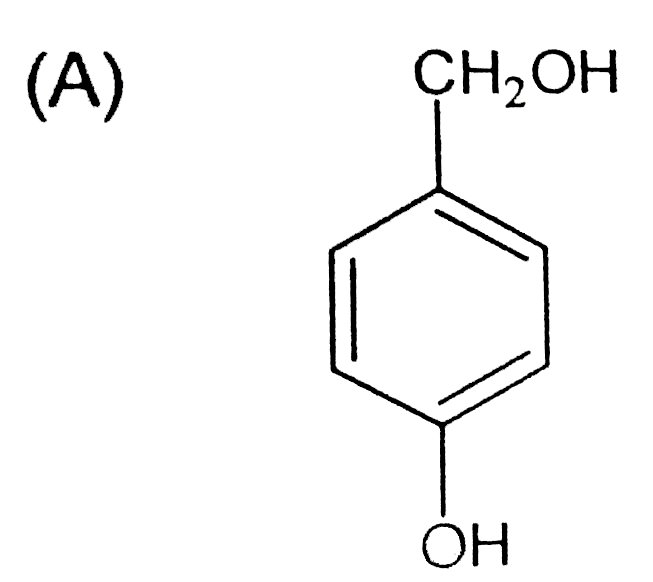Which of the following can give aldehyde by the oxidation with Jones reagent?

CH2=CH−CH2OH
H3C−CH3∣C∣CH2−CH2OH

The correct Answer is:A, B, C, D
To determine which compounds can give aldehydes upon oxidation with Jones reagent, we need to consider the nature of the compounds provided in the options. Jones reagent, which is a solution of chromium trioxide (CrO3) in dilute sulfuric acid, is commonly used to oxidize alcohols.
1. Identify the Types of Alcohols:
- First, we need to identify whether the compounds in the options are primary (1°), secondary (2°), or tertiary (3°) alcohols.
- Primary alcohols can be oxidized to aldehydes, while secondary alcohols can be oxidized to ketones. Tertiary alcohols do not undergo oxidation to aldehydes or ketones.
2. Analyze the Options:
- For each option, determine its structure and classify it as primary, secondary, or tertiary alcohol.
- Example:
- If an option is a primary alcohol (like ethanol), it can be oxidized to an aldehyde (like acetaldehyde).
- If an option is a secondary alcohol (like isopropanol), it will be oxidized to a ketone (like acetone) instead of an aldehyde.
- If an option is a tertiary alcohol (like tert-butanol), it will not be oxidized to any carbonyl compound.
3. Apply the Oxidation Reaction:
- For each primary alcohol identified, write the oxidation reaction with Jones reagent to show the formation of the corresponding aldehyde.
- Example:
- Ethanol (C2H5OH) + Jones reagent → Acetaldehyde (CH3CHO) + H2O
4. Conclusion:
- List all the compounds that can be oxidized to aldehydes with Jones reagent based on the analysis.
- Only primary alcohols will yield aldehydes upon oxidation.
Final Answer:
The compounds that can give aldehydes upon oxidation with Jones reagent are the primary alcohols from the options provided.
- First, we need to identify whether the compounds in the options are primary (1°), secondary (2°), or tertiary (3°) alcohols.
- Primary alcohols can be oxidized to aldehydes, while secondary alcohols can be oxidized to ketones. Tertiary alcohols do not undergo oxidation to aldehydes or ketones.
- For each option, determine its structure and classify it as primary, secondary, or tertiary alcohol.
- Example:
- If an option is a primary alcohol (like ethanol), it can be oxidized to an aldehyde (like acetaldehyde).
- If an option is a secondary alcohol (like isopropanol), it will be oxidized to a ketone (like acetone) instead of an aldehyde.
- If an option is a tertiary alcohol (like tert-butanol), it will not be oxidized to any carbonyl compound.
- For each primary alcohol identified, write the oxidation reaction with Jones reagent to show the formation of the corresponding aldehyde.
- Example:
- Ethanol (C2H5OH) + Jones reagent → Acetaldehyde (CH3CHO) + H2O
- List all the compounds that can be oxidized to aldehydes with Jones reagent based on the analysis.
- Only primary alcohols will yield aldehydes upon oxidation.
The compounds that can give aldehydes upon oxidation with Jones reagent are the primary alcohols from the options provided.
Similar Questions
Knowledge Check
Which of the following compounds give negative test with Tollen's reagent ?
Aph−O∣∣C−HB C
C DCH3−O∣∣C−CH3
DCH3−O∣∣C−CH3Which of the following compounds give positive test with Tollen's reagent ?
AH−O∣∣C−OHB CCH3−CH∣OH−OC2H5DCH3−O∣∣C−H
CCH3−CH∣OH−OC2H5DCH3−O∣∣C−H
Which of the following can be oxidized by KMnO4?
View SolutionWhich of the following does not give an oxide on heating ?
View SolutionWhich of the following alcohols does not give an aldehyde on oxidation ?
View SolutionWhich of the following gives benzoic acid on oxidation :
View SolutionWhich of the following gives ketone on oxidation?
View SolutionWhich of the following can give immediate turbidity on treatment with Lucas Reagent?
View Solution
